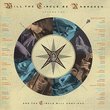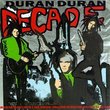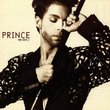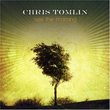| All Artists: Ricky Nelson Title: Legacy Members Wishing: 7 Total Copies: 0 Label: Capitol Release Date: 11/21/2000 Album Type: Box set, Original recording remastered Genres: Pop, Rock Styles: Oldies, Teen Pop, Oldies & Retro Number of Discs: 4 SwapaCD Credits: 4 UPC: 724352952120 |
Search - Ricky Nelson :: Legacy
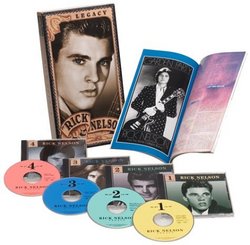 | Ricky Nelson Legacy Genres: Pop, Rock
Rick Nelson's lengthy career spanned 30 years, with records on the charts from the late '50s to the early '80s, yet most remember him only as "Little Ricky." This comprehensive, 100-song retrospective rectifies that, gi... more » |
Larger Image |
CD DetailsSynopsis
Amazon.com Rick Nelson's lengthy career spanned 30 years, with records on the charts from the late '50s to the early '80s, yet most remember him only as "Little Ricky." This comprehensive, 100-song retrospective rectifies that, giving full scope to his remarkable and surprisingly robust career. Additionally, the photo-heavy booklet gives insight into the era when rock & roll, television, and culture first merged. Ricky Nelson was the first teen idol who grew up on television. His parents' Ozzie and Harriet Show afforded him the opportunity to sing, and he was groomed to be early TV's middle ground between Elvis and Pat Boone. Disc 1 captures this period, featuring his earliest hits such as "I'm Walkin'" and "Poor Little Fool," though others like Little Walter's "My Babe" and "There Goes My Baby", with sizzling guitar leads by James Burton, reveal a genuine rockabilly edginess, suggesting Ricky's truer leanings. Disc 2 has the majority of Ricky's largest hits, pop pieces from '59 to '65, where the addition of strings and the Jordanaires' backing vocals led to smash hits like "Mary Lou," "Travelin' Man," and "Young World." Disc 3 documents Rick's (he had dropped the y) mid-'60s evolution into a country sound heavily influenced by Bob Dylan's Nashville Skyline. Rick's version of Dylan's "Love Minus Zero/No Limit" was well received, but the big hit on this disc is "Garden Party," a wry, autobiographical take on his rejection by a '72 oldies-oriented crowd at Madison Square Garden. Disc 4 features material with his Stone Canyon Band, covering the period from 1972 to 1985, the year of his unfortunate plane crash. By now, his rich, yearning voice blends perfectly with the pedal-steel-led band, and the music sounds remarkably contemporary. Rick Nelson's teenage celebrity typecast him for life, but Legacy reveals a solid musician who matured and grew over time. This anthology does him and his fans a great service. --Wally Shoup Similarly Requested CDs
|
CD ReviewsA Fitting Legacy Ian Cooke | Wenatchee, WA United States | 11/23/2000 (5 out of 5 stars) "Rick Nelson, the name brings many images to the "Crown Prince of Rock & Roll." Teenage Idol, Rockabilly and Country-Rock Icon, Golden Age of Rock & Roll Superstar, Has Been and lastly Comeback Artist.Capitol has captured the essence of Rick' music career. Covering all Record Companies that Rick recorded for, we as fans, collectors and first time listeners, have the "Best of Rick's musical recordings". Utilizing Master recordings from Verve, Imperial, MCA/Decca, Epic, Capitol and the Nelson Family, we see Rick's early beginings as a Novice Recording Artist, to Superstar, Country-Rock Artist and returning to his Rockabilly roots. Such unrleased songs as Gloomy Sunday, (legend has it that Ozzie Nelson feared Rick's teenage fans would pull a Kurt Cobain after hearing this song), Brand New Girl, You Are My Sunshine from the Legendary Imperial Days. The two Christmas songs from Ozzie and Harriet, Jingle Bells and The Christmas Song. Bye Bye Love (w/Don Everly from the Troubadour 1969), Truck Drivin Man show Rick's live performance ability. Garden Party, One Night Stand, Gypsy Pilot, Easy To Be Free, She Belongs To Me, highlight Rick's Stone Canyon Band days.Finally, Rick's return to Rockabilly is showcased by some wonderful songs written by such artists as John Fogerty, Graham Parker, Rocky Burnette, (Rick recorded a GREAT version of Tired Of Toein' The Line) John Hiatt, Mickey Jupp and Buddy Holly. Almost Saturday Night, Back To School Days, a live in the studio Believe What You Say, show a orginal Rock & Roller who still has his chops.Congratulations to Capitol for a Box Set worthy of one of Rock & Rolls lost resources. The Booklet is informative and full of many unavailable photos. Wonderful memories by family, friends and musicians provide insights into a kind, gentle and talented human being.Hopefully we as fans will be fortunate to have other Rick Nelson material released in the near future. Video performances from Ozzie and Harriet, Stone Canyon Band days and his return to roots performances from the late 70's-85.Go out and purchase this OUTSTANDING Box Set, this is a worthwhile addition to anyone's music library.Rock ON Rick!!" Everything you need in one place James E. Bagley | Sanatoga, PA USA | 06/08/2001 (5 out of 5 stars) "Ozzie and Harriet's youngest son was one of rockabilly's finest purveyors as well as an innovator in the country rock movement. For proof, look no further than this exquisitely packaged, 100-track box set that provides a thorough over-view of Nelson's nearly thirty-year recording career. Disc one (1957-1959) captures Ricky the rocker. What began as a whim (making a record to impress a girlfriend) lead to immediate success on the pop charts, thanks in large part to the music's exposure on the Ozzie & Harriet television program. Nelson's initial recordings for Verve Records lead off the disc, and an uninspired lot they are. While his cover of Fats Domino's "I'm Walkin'" is certainly a credible first effort, the two follow-ups "You're My One And Only Love" and "A Teenager's Romance" are plush [stuff] and of interest for historical reasons only. Their chart success helped Ozzie negotiate a five-year contract with Imperial Records that provided Rick with complete control over song selection. This allowed the younger Nelson to embrace his love of rockabilly. "Stood Up," "Waitin' In School," "Believe What You Say," and "My Bucket's Got A Whole In It" are just a few of the enclosed barn burners, each featuring a sizzling guitar solo by legendary sideman James Burton. Some slower hits - Nelson's first number one "Poor Little Fool," the moody "Lonesome Town" (his greatest vocal performance) and previously unreleased gems - a duet with Dean Martin from Rio Bravo, the suicidal "Gloomy Sunday," - are sprinkled throughout, but the prevailing theme of disc one is definitely rocka-rocka-rockabilly.Disc two (1960-1964) showcases Nelson as a pop crooner, the first half dominated by ballads like "Young Emotions," "Teenage Idol," and his biggest hit "Travelin' Man." He still had stellar rockabilly moments from time to time though, with a pair of hits from 1961 ("Hello Mary Lou" and "Everlovin'") ranking among his best up-tempo recordings ever. In 1963, Nelson left Imperial and signed a lucrative, long-term deal with Decca. His first two years with the label make up the last third of the disc. Nelson's earliest Decca singles were the rockabilly tunes "I Got A Woman" and "Gypsy Woman." Their lackluster chart placements, however, would lead Nelson to shift his approach (successfully) to Latin-flavored updates of big band standards like "Fools Rush In," "For You," and "The Very Thought Of You." A couple of previously unreleased (and first-rate) renditions of "Jingle Bells" and "The Christmas Song (Chestnuts Roasting On An Open Fire)" - performed on Ozzie & Harriet - complete this most entertaining and varied disc in the set. The disc also documents the end of Nelson's years as a regular presence on the pop charts; the British Invasion had completely taken over American radio by 1965, and 50's teen idols in particular were definitely out of favor. Disc three (1966-1972) finds Nelson - still at Decca - reinventing himself as a country rocker. Artistically (although not commercially) successful forays into traditional country lead off, with the western swing of "Louisiana Man," a rollicking "Night Train To Memphis," and his own ballad "Alone" (the latter also featuring the Jordanaires, Nelson's backup singers during the Imperial years) among the entertaining tracks. Next comes a pair of esoteric numbers from Rick's folk period in 1967 ("Suzanne On A Sunday Morning," the self-written "Promenade In Green") that miss the mark. We're a third of the way through the disc and things are starting to seem bleak. Enter the Stone Canyon Band to back up Nelson and help him establish the country-rock sound (which would influence, among others, the Eagles). Here, Nelson hits his stride for the first time in years, with a hit cover of Bob Dylan's "She Belongs To Me" in 1969 and his optimistic ode "Easy To Be Free" in 1970. A few tracks later, Nelson and the Stone Canyon Band reach their apex with 1972's "Garden Party": his autobiographical tale of rejection by a Madison Square Garden oldies' concert audience who didn't appreciate Nelson's updated appearance and sound. It was to be his last radio hit.Disc four highlights Nelson's final recordings (1974-1985) as he tried in vain to re-interest the record buying public. The early tracks - covering mid-to-late '70s work for MCA and Epic - continue the mellow country-rock sound that permeates throughout disc three, with "One Night Stand" and "Stay Young" making a particularly strong impression. The early '80s material for Epic and then Capitol that follows finds Nelson mostly covering other notable rockers' material, with mixed results. A great rendition of John Fogerty's "Almost Saturday Night" and an effectively slowed down version of the Bobby Darin classic "Dream Lover" (similar to what James Taylor did with "Handy Man" and "Up On The Roof") are off-set by Nelson's horrendous take on Rocky Burnette's "Tired Of Toeing The Line." Eventually a top-ten hit for Burnette, Nelson's interpretation finds his voice electronically altered beyond recognition and beset by off-key shrieking at its conclusion. Among the previously unreleased bonus tracks, Nelson fares well with Buddy Holly's "Rave On," but less so with John Hiatt's "Doll Hospital." On one of this collection's final efforts, "Do You Know What I Mean" (a one-off single for MCA), Nelson offers a welcome return to rockabilly. It was a direction Nelson had planned to concentrate on just prior to his untimely death on December 31, 1985. The best tracks on discs three and four could have been combined into one disc to create a tighter collection. Overall, though, Legacy is a strong box set that clearly reveals why Nelson earned his spot in the Rock and Roll Hall of Fame." This box set has given new life to my thirst for music. Ian Cooke | 07/31/2001 (5 out of 5 stars) "I was 10 or more years too young to properly appreciate Nelson as an "oldie" artist. By the time I came of age, Nelson was no longer in the limelight and I guess his records were kept in the "golden oldie" section, far from where I shopped. After I grew, I happened to hear his "Dream Lover" and liked it right away. Never found it, however--that is until all these years later when I happened on the recent special on A&E and heard a snip-it of the song. A "Rick Nelson" internet search turned up the title "Dream Lover" on this box set. I liked that song so much I was willing to pay [$] for it even if the price included oldies I thought I would not fully appreciate. I far underestimated the set. This box set has given new life to my thirst for music. Nelson's later recordings and the songs he wrote are brilliant. After playing CD's 3 & 4 over and over, I appreciated CD's 1 & 2 in a way that caught me off guard. Legacy gave me a new artist, not an "oldie" one. So many of these could be 2001, "new artist" best sellers. Even some songs on disc 1 sound to me like they belong next to today's Ricky Martin, Santana or Chris Isaac (i.e. I Wanna Be Loved). What a shame I had to wait until now to learn about the richness of this artist. I wish Nelson's Stone Canyon and late recordings had been given more media attention at the time he first recorded them. None-the-less, I am grateful to have the opportunity to hear them now. Thank you, Capitol records and all those who worked to put this music together, and especially renowed musicologist Mr. Bob Hyde."
|

 Track Listings (31) - Disc #1
Track Listings (31) - Disc #1
